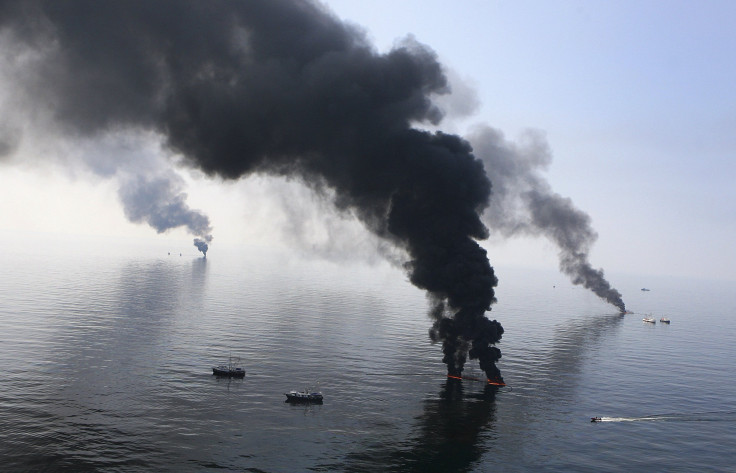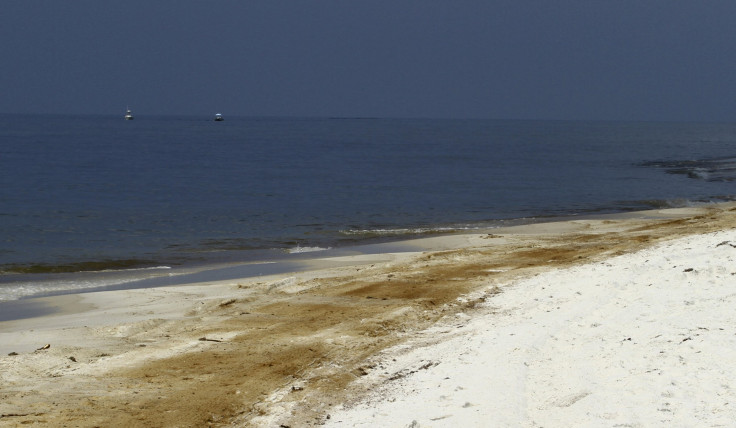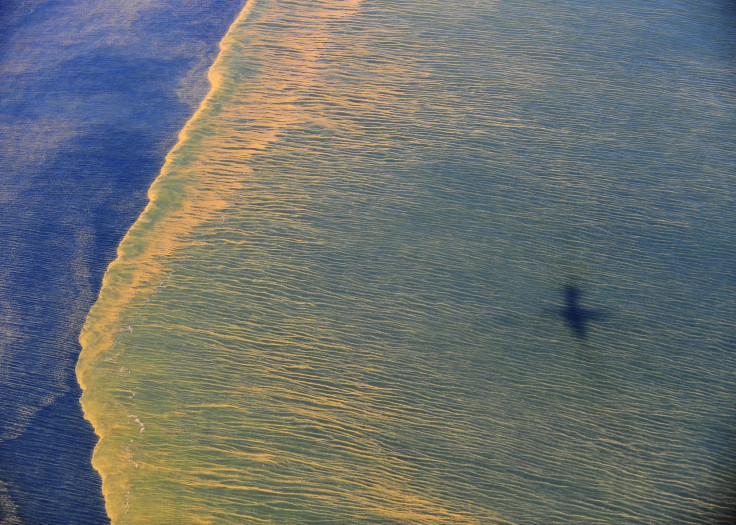Deepwater Horizon Oil Spill Facts: Movie Ignores Deaths, Environmental Toll

In the weeks after the 2010 Deepwater Horizon explosion in the Gulf of Mexico, hotel phone lines began ringing in Orange Beach, Alabama, with reservation cancellations. Before the reddish-orange waves of oil even hit the pristine white beaches on the island town, the leak had already ruined the summer tourism season that was to start in just one month and provide 95 percent of the town’s economic income for the year.
But, unlike in the explosion-packed thriller "Deepwater Horizon" that opens Friday, the devastation to coastal towns and habitats along the Gulf did not resemble a fireworks show. The oil approached slowly, coated wildlife and beaches from Texas to Florida and forced communities to scramble to preserve their ways of life and sense of identity. In the years since, communities have continued that struggle to clean up and move on, showing their resilience even while recovery is slow in many places.
Orange Beach Mayor Tony Kennon remembers well the day the oil washed ashore. “It was the most ungodly thing I can ever imagine. I remember going to the beach the first day when it started to make landfall and within an hour I had a pounding headache, chest congestions from the fumes,” Kennon, who conducted 23 town halls a week across the Gulf after the spill, told International Business Times in a phone interview this week.

Orange Beach is located southeast of Mobile and directly east of the mouth of Mobile Bay. The island is bordered to the west by Gulf State Park and to the east by water and the border with Florida. Fishing off the coast was quickly shut down there and all along the coast from Florida to Louisiana as the toxic oil spread from the disaster. The idle fishing boats were recruited to help clean up the water by British Petroleum, the owner of the barge responsible for the leak. But those efforts weren’t enough to reassure everyone that all wasn't lost.
In June 2010, 55-year-old Orange Beach ship captain Allen Kruze killed himself while at sea on a cleanup trip. He had told his family that the cleanup was more for show than getting things done and he thought he’d never fish again. Kennon calls Kruze the 12th casualty of Deepwater Horizon spill, after the 11 men killed from the explosion and fires featured in the new film.
“They shut him down, wouldn’t allow him to fish. This was in the heat of the moment. There were rumors of dire consequences,” Kennon said. “It just took a toll on him and he just decided he couldn’t take it anymore. He didn’t think he’d ever be able to fish again.”
The over 200 million gallons of oil that spewed from Deepwater Horizon also killed off or stranded more than 900 bottlenose dolphins and killed around 500 sea turtles from five different species. Bluefin and yellowfin tuna have shown increased heartbeats as embryos (causing concern for future heart attacks), Loons are showing increasing levels of toxic oil compounds in their blood and sperm whales are carrying increased levels of DNA-damaging metals in their blood.
The last published map of fishing restrictions by the National Oceanic and Atmospheric Administration was posted in April 2011, nearly a year after the initial explosion, but the impact on fishing populations persists. Crab fishers report that they don't catch nearly as much as they used to, beaches in Louisiana and elsewhere still get covered in thick globs of oil occasionally and, in places like Barataria Bay in Pointe a la Hache, Louisiana, the spill had the effect of killing off most or all of its oyster reefs and driving away tourism.

The errors that led to the April 20, 2010 explosions would eventually be called, by a federal judge,“grossly negligent.” BP, behind schedule and tens of millions of dollars over budget, had taken shortcuts and ignored safety test results, ultimately leading to a failure of the cement base in the 18,000-foot-deep well that was supposed to keep oil in the wellbore. That failure prompted a waterfall of further errors — both human and mechanical — as crude oil spewed up onto the oil rig before eventally igniting and claiming 11 lives there, according to joint analysis from the Bureau of Ocean Energy Management, Regulation and Enforcement and the Coast Guard. Oil gushed for 87 straight days fore being closed by a cap.
The new "Deepwater Horizon" movie opening Friday portrays the moments leading up to and immediately following that disaster. In the movie, a British Petroleum executive appears to cherry-pick safety test results and says things aren't so bad, creating at least some the conditions that leads to the spill and ensuing fireball that became the biggest eco disaster in history. The portrayal of the men on the rig as they risked their lives to stem the leak has been met with good reviews for striking a difficult balance between unavoidable exploitation and honoring the victims.
The total cumulative economic effect of the spill on the region may not be known for decades as economists study the indirect impacts on retail and commerce in the area. What is known is that hundreds of thousands of claims have been filed and, as of April, BP had paid out $10 billion of those claims. The Wall Street Journal estimates the company will ultimately pay more than $56 billion as a result of the spill, including cleanup costs.
Ashton Hayward, the mayor of Pensacola, Florida, looks back on the past five years as a period of rebirth for his city. Hayward says he’s amazed by the resiliency he’s seen in people in his town and across the Gulf Coast.
His town, which, like Orange Beach, had oil wash up on the “sugar-white” beaches that are responsible for a considerable portion of the local economy, has worked hard to rebound, he said. The economy was dealt a blow in the millions of dollars range but the community came together.
Hayward said he was pleased with the BP response but isn’t interested in seeing big oil rigs off the coast anytime soon.
“People are resilient and I think that’s one of the human elements, no matter what the devastation was from war to terrorism to the largest environmental disaster. I am impressed by the resiliency, the human interest and the human capital,” Hayward said. "When they came together, it changed our community.”
© Copyright IBTimes 2025. All rights reserved.






















